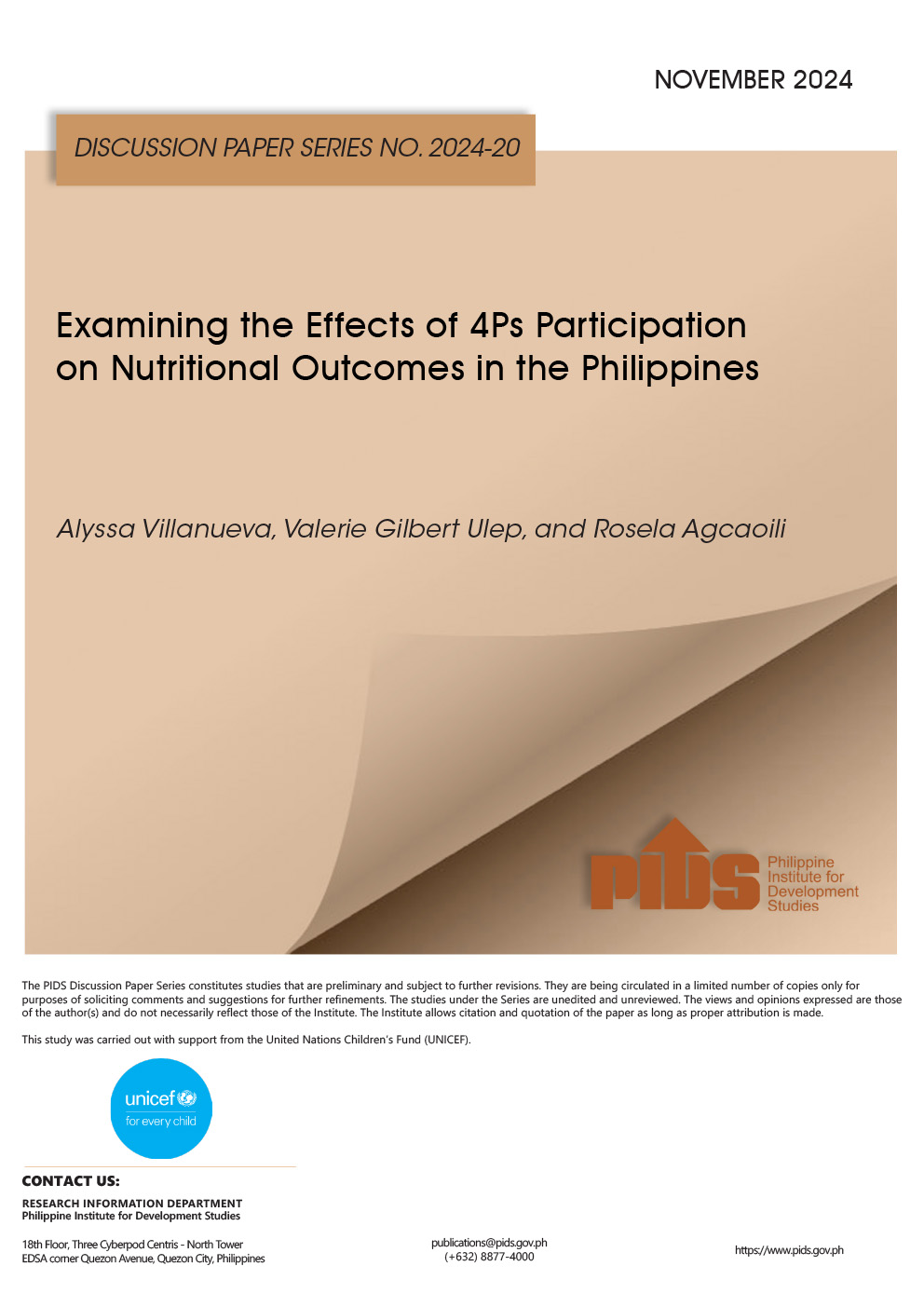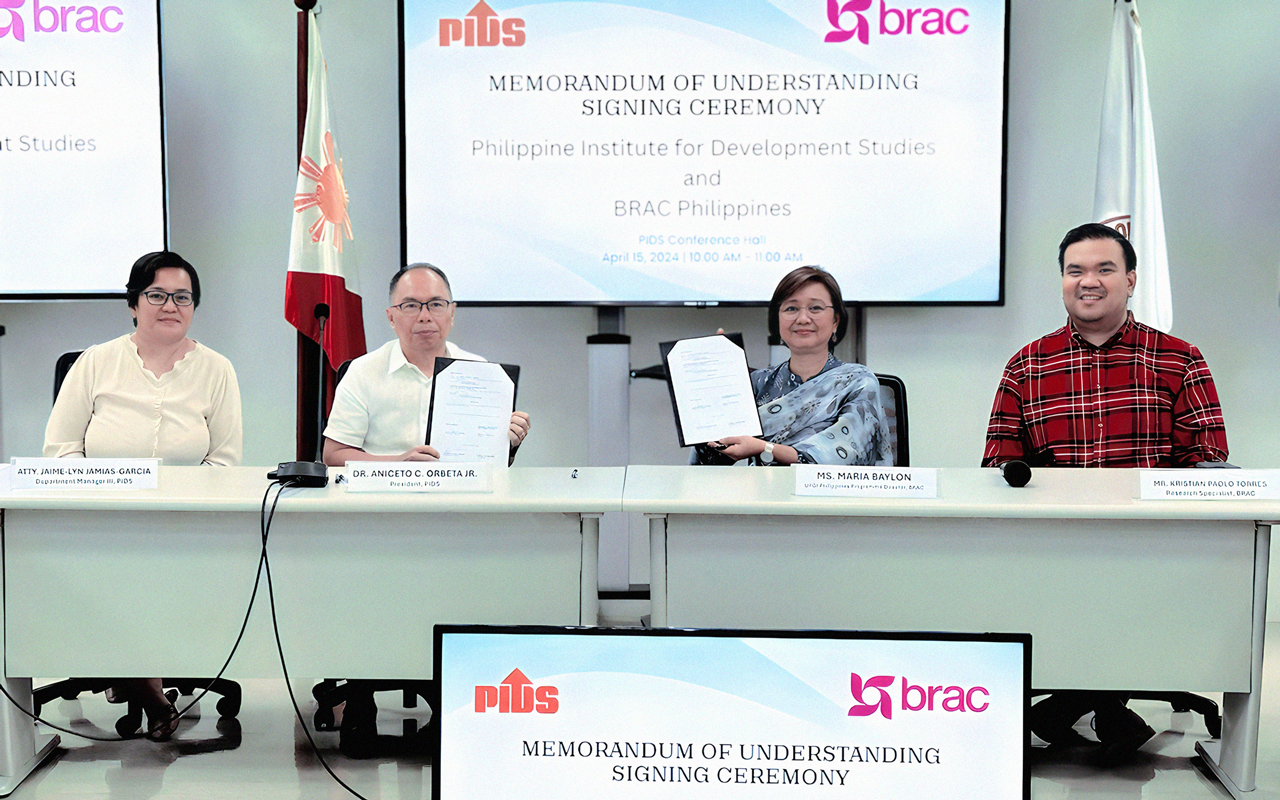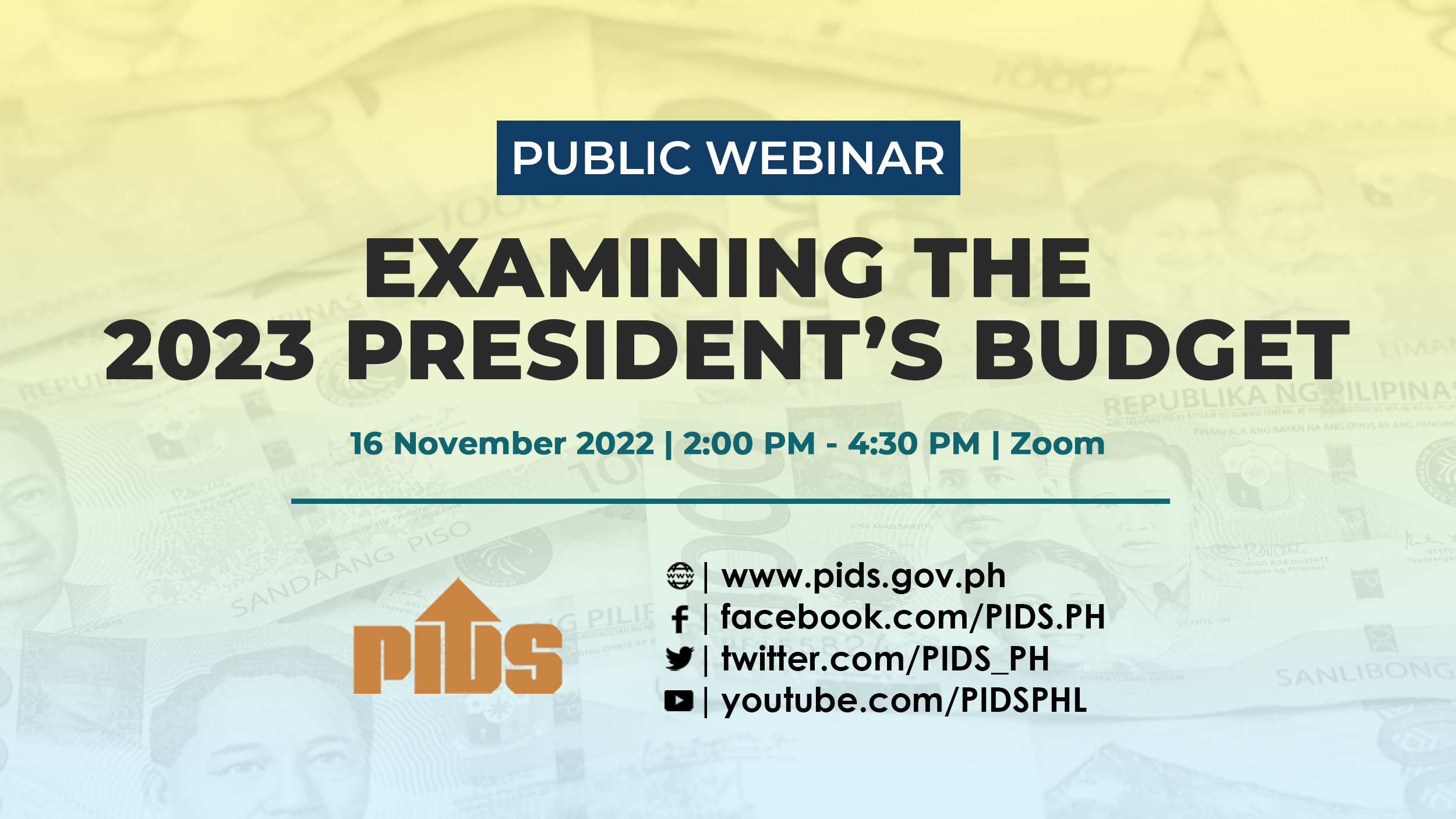The Conditional Cash Transfer (CCT) program is a long-term solution to intergenerational poverty.
National Economic and Development Authority (NEDA) Director General Arsenio Balisacan pointed this out yesterday as he defended before the House Committee on Appropriations the continued implementation of CCT, often called the government dole-out program.
Under the proposed 2016 national budget, the CCT program will be allocated P62.67 billion, up from P62.3 billion in 2015, to benefit 4.6 million household beneficiaries, Budget Secretary Florencio "Butch” Abad told the same House panel chaired by Davao Rep. Isidro Ungab.
At yesterday’s Development Budget Coordinating Committee (DBCC) briefing on the P3.002-trillion national budget for 2016 before the House Committee on Appropriations, Balisacan justified the scaling up of the CCT program or the Pantawid Pamilyang Pilipino Program (4Ps) to cover more beneficiaries, including those in high school and beneficiary families.
However, opposition lawmakers Leyte Rep. Ferdinand Martin Romualdez, who heads the House Independent Bloc, and House Senior Deputy Minority Leader and Bayan Muna party-list Neri Colmenares maintained that the Aquino government should instead invest more on providing decent jobs to Filipinos rather than spending billions of pesos for the CCT.
"Let us teach our people how to catch fish and not to continuously depend on government’s resources through the CCT. It is the primary duty of the state to ensure that quality and decent jobs are given to Filipinos. The need for livelihood and jobs are the real concerns now and this is a long-term solution to address the widespread poverty,” Romualdez, president of the Philippine Constitution Association (Philconsa), said.
LONG-TERM SOLUTION
But Balisacan said the decision to expand to high school aged children was based on research evidence that older Filipino children have lower school attendance rates than younger ones.
"More generally, contrary to allegations that the CCT program is a dole out, I would like to emphasize that the CCT program is actually meant to provide a long-term solution to poverty.
It is grounded on studies (PIDS study in 2011) that a large part (47.4 percent in 2009) of our poor population are chronically poor,” he told the Ungab panel.
"The incentives or conditions that have been set in terms of health and education are actually meant to enable these poor families to break the cycle of intergenerational poverty and to fulfill our long-term objective of sustainable and inclusive growth,” Balisacan pointed out.
He noted that poverty incidence has been reduced to 25.8 percent, with about half a million Filipinos lifted out of poverty between 2012 and 2014.
"This implies a more equitable and inclusive distribution of the gains from economic development,” he said.
While, admitting that they still have "a lot of ground to cover in improving our people’s welfare,” Balisacan said they have started to see greater inroads against poverty with faster growth, more jobs, and greater investments in social services.
CCT FOR VOTE BUYING?
But Colmenares warned that as May, 2016, national elections near, the CCT will likely be used by the Aquino administration for vote buying.
"The CCT had always been questionable because it is essentially legalized vote buying because it is a means to influence voters and not a means to alleviate poverty,” he said.
"The budget should instead be used for creating jobs and implementing genuine land reform. This would benefit the poor more than the hundreds of billions spent for CCT,” he pointed out.
Colmenares said the dole-out program, which has been implemented since the time of former President Gloria Macapagal Arroyo, failed to address the vicious cycle of poverty.
"Matagal na tayong tumatawid pero di pa rin umaabot sa papuntahan,” he said.
Romualdez had lamented that despite reported irregularities, the Aquino government increased the CCT budget this year from P62.6 billion in 2014 to P62.3 billion.
DSWD Secretary Corazon Soliman had assured that they have put in place measures that will ensure that rightful beneficiaries receive assistance under the 4Ps.
In separate interviews, Colmenares’ fellow Makabayan bloc lawmakers — Gabriela partylist Rep. Luz Ilagan and Kabataan partylist Rep. Terry Ridon renewed calls to scrap the CCT program.
"From the very start we opposed this program. Along the way, we pointed out the anomalies, the problems, the weaknesses of the program. Such a humongous amount, increased every year, has not addressed poverty at all. It should be scrapped. The additional danger is that it will be an election instrument,” Ilagan said.
"The CCT should be scrapped altogether. By losing a third to unintended persons, it should already be a clear sign that the CCT is ineffective in poverty alleviation,” Ridon said.
Youth group Anakbayan joined the opposition to the CCT program as it assailed massive cuts in the budget of state universities and colleges.
The group said that the budget cut was evident in the case of the University of the Philippines (UP).
As the allocation for education is being ripped profusely, Anakbayan accused President Aquino of pampering political allies through the bloated P62.67-billion CCT budget.
Worse, Malacañang also allocated P65.9 billion for the Public-Private Partnership (PPP) program for 2016 to sweeten the pot for companies willing to plunk in some investments for infrastructure projects before the Aquino administration leaves next year.
Anakbayan national chairperson Vencer Crisostomo said practically all SCUs will suffer the same fate as UP, which has no capital outlay for improving its dormitories and sprucing up its facilities, just as it has little to spend for new instructors.
UP recently figured in the news for failing to provide adequate housing facilities for students and overbooking classes.
For his part, Party-list Rep. Terry Ridon of Kabataan asked Aquino: "How can our state universities provide decent services to students if the government continues to cut their budget? This situation only highlights the stark misprioritization of the Aquino administration — more funds for big business, less for social services.”
The funds for CCT and PPP, Crisostomo said, come from hard-earned money from taxpayers who subsidize the still-idle beneficiaries of the CCT.
ADVERSE STUDIES
Worse, studies conducted by the Oxford University in England pointed to instances when local officials, particularly in Eastern Visayas, took control of the ATM cards of beneficiaries and made a cut on the P1,400 monthly subsidies.
For its part, the World Bank (WB) noted fund leakages that account for 19 percent of the total budget.
Their findings are close to the estimate of a former chief of the National Anti-Poverty Commission (NAPC) who said 40 percent of the beneficiaries "were not dirt-poor” and should be deleted by Soliman.
The DSWD has been implementing the CCT program to provide financial assistance to poor families since 2008.
Last March, the House Committee on Poverty Alleviation approved a bill seeking to institutionalize the CCT program to reduce poverty and promote human capital development in the country. (With a report from Chito A. Chavez)










